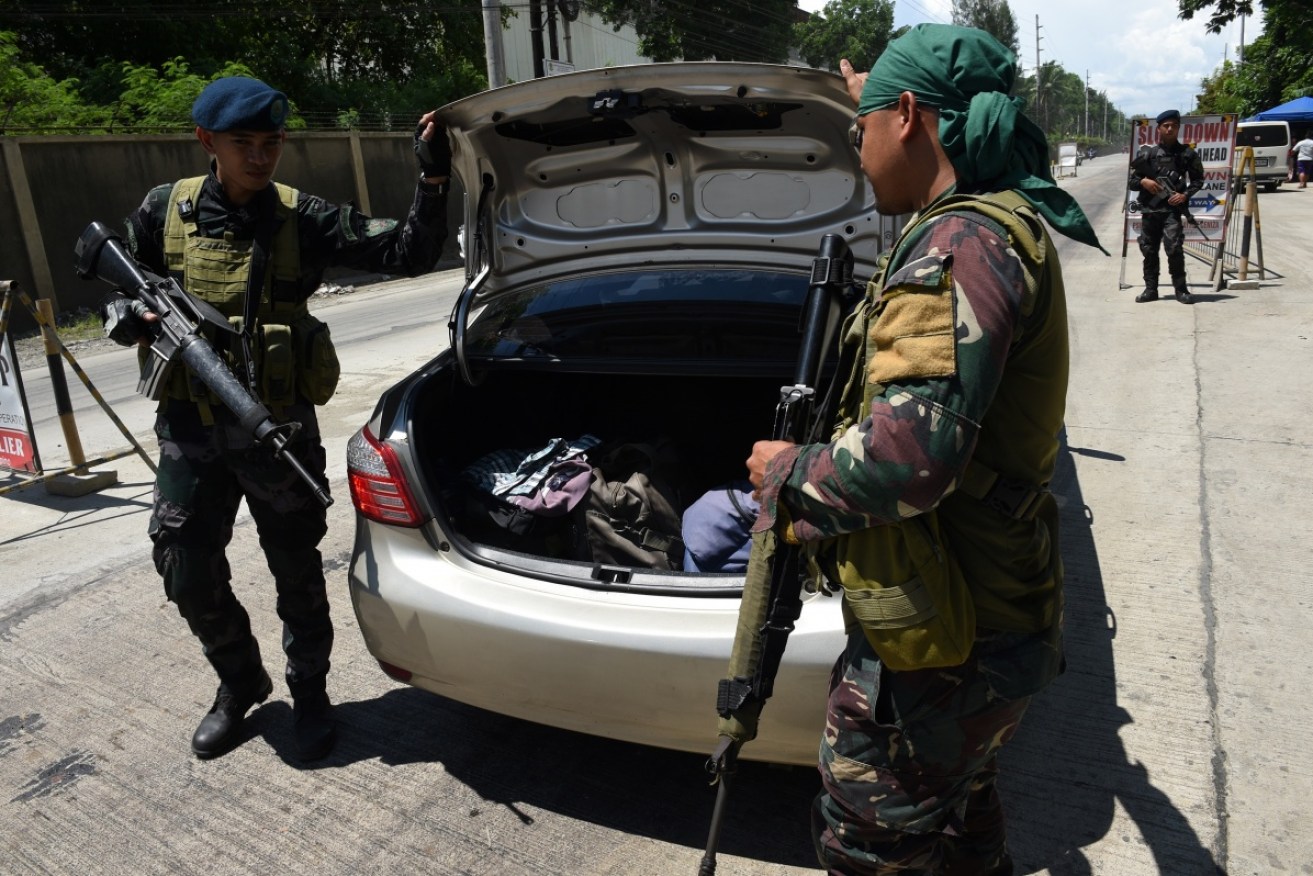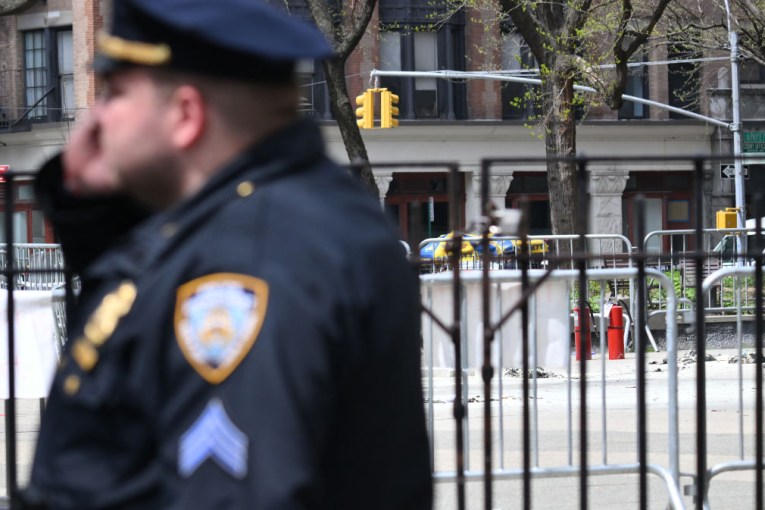Martial law flagged across the Philippines amid Islamist threat


Security officers searching a car at a checkpoint on Tuesday in Iligan, on the southern Philippine island of Mindanao. The island is under military control because of a growing insurgent threat. Photo: Getty
Philippines President Rodrigo Duterte has flagged the declaration of martial law across the nation as the threat of militant Islamic insurgents grows in the Catholic-majority country.
President Duterte imposed martial law the southern region of Mindanao on Tuesday night after an attack by Muslim extremists allied with Islamic State.
Mr Duterte cut short his Moscow trip to meet Russian President Vladimir Putin, rushing home early to deal with the crisis, while Foreign Secretary Alan Peter Cayetano remained in Moscow.
Presidential spokesman Ernesto Abella told reporters that martial rule had taken effect “on the grounds of existence of rebellion”.
Defence Secretary Delfin Lorenzana said troops raided the hideout of a top terrorist suspect in southern Marawi city on Tuesday (Filipino time), sparking a gun battle that prompted the militants to call for reinforcements from an allied group, the Maute.
He said the city hall, a hospital and a jail became occupied by dozens of gunmen and a Catholic church, a college, a jail and some houses were set on fire. The attack killed at least two soldiers and a police officer, wounding 12 others.
Archbishop Socrates Villegas president, of the Catholic Bishops Conference of the Philippines, told AP the militants forced their way into a cathedral and kidnapped a priest, 10 worshippers and three church workers.
“He (the priest) was not a combatant. He was not bearing arms. He was a threat to none,” he said.
“His capture and that of his companions violates every norm of civilised conflict.”
He said the gunmen demanded the government recall its forces.
University of the Philippines-Diliman’s Aries Arugay said local terrorist groups were trying to capture the attention of Islamic State (IS).
“This has something to do with their failure in proving that they could be viable governors and this is something that IS has always focused [on],” Associate Professor Arugay told the ABC’s The World program.
“Having some violent clashes with the military works in their favour because they have the ability to show they have the firepower.”
Defence Secretary Lorenzana said Mr Duterte’s martial law declaration will help government forces carry out searches and arrests to more quickly detain suspected rebels.
He said offensives would also be staged in other southern provinces overcome by extremist groups.
“The whole of Marawi city is blacked out, there is no light, and there are Maute snipers all around,” Mr Lorenzana told AP.
Local police chief beheaded by militants
While Mr Duterte has been pursuing peace talks with two large Muslim rebel groups, he has ordered the military to remove smaller extremist groups which have tried to align with IS.
After returning from Moscow, Mr Duterte said on Wednesday he would consider martial law in other parts of the Philippines “in order to protect the people.”
“If I think that ISIS has taken a foothold also in Luzon [the main northern island] and terrorism is not really far behind, I might declare martial law throughout the country.”
He also said militants who stormed southern Marawi city beheaded the local police chief.
Human rights groups have shown concern over the introduction of martial law possibly delivering further power to Mr Duterte. They have accused the President of allowing extrajudicial killings of thousands of drug suspects in a crackdown on illegal drugs.
Hapilon: One of America’s most wanted terrorists
Military chief General Eduardo Ano said the battle was triggered when troops attacked the hideout of Muslim extremist leader Isnilon Hapilon.
He is on the list of the most-wanted terrorists worldwide, with a reward of up to $5 million for his capture.
General Ano said Mr Hapilon was recovering from wounds sustained in a military airstrike in January.
Troops sealed off major entry and exit points to prevent Mr Hapilon from escaping, General Ano told the AP by phone from Moscow.
Government officials maintain that the government remains in control of the situation in Marawi city.
“They did some burnings, they showed up in another area so it looked chaotic, but it’s actually a small group facing an overwhelming number of government forces,” General Ano said.
“We will conduct house-to-house clearing and do everything to remove the threat there.”
– With AP








